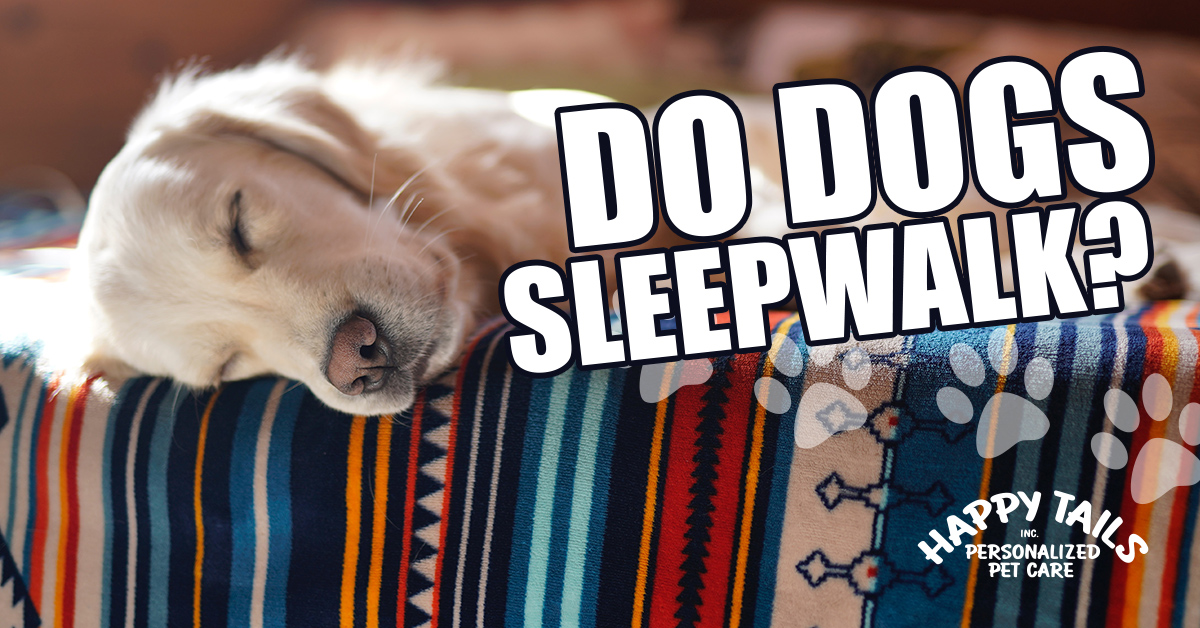If you’re a veteran canine companion owner, you’ve probably seen a dog twitch, jerk, or maybe even move their legs in a running motion while they sleep. Sometimes these funny little quirks can progress into pacing around or even galloping. This can lead many owners to wonder – can my dog sleepwalk?
The answer t0 that question isn’t a completely straightforward one. But we’ll dive into what scientists know about these behaviors and what might be causing them.
What Exactly Even is Sleepwalking?
Sleepwalking is a behavioral disorder that causes someone to walk or perform actions, all while being fast asleep. And despite the name, sleepwalking entails more than just simply the motion of walking. It can involve a variety of complex processes and behaviors; walking is just the most prominent and straightforward symptom.
Through human test subjects, we’re able to know a lot about sleepwalking. But humans are also the source of all of our knowledge when it comes to this disorder. Since canines can’t necessarily articulate their thoughts and feelings, they tend to make poor test subjects.
Is My Dog Sleepwalking?
Your furry friend may be able to dream, and move their limbs in their sleep – but as far as research knows they cannot sleepwalk. There are several cases and videos you can find all over the internet of canines moving their legs in a sprinting motion while they sleep. Some even lurching a few feet before flopping back onto the floor. But these symptoms that are assumed to be sleepwalking are usually being mistaken for other sleep disorders.
Common Disorders that Get Confused for Sleepwalking
Since it doesn’t appear from research that canines can sleepwalk, there are usually other disorders behind their behaviors that can explain these symptoms.
- Neurological Disorders: If a pup’s brain and nervous system aren’t operating properly, it can result in a variety of strange behaviors. An example of a neurological disorder that could cause your dog to pace in circles, press his/her head against a wall, or vocalize for what seems like no reason, all while appearing to be asleep, could be the result of seizures.
- Sleep Disorders: Even though dogs don’t experience sleepwalking, they do appear to suffer from a handful of other sleep disorders that humans do as well. Examples like insomnia and narcolepsy can cause your dog to be extremely drowsy and create unusual sleep phase patterns.
- Cognitive Disorders: With age, some furry friends can end up experiencing a decline in their cognitive abilities. This can sometimes lead to them wandering aimlessly, acting confused, or just seeming unlike their usual selves.
Many of the symptoms you may confuse for sleepwalking could actually be one of these disorders. Which can all be very serious and detrimental to Fido’s health if not addressed urgently.
If it ever seems like there’s something off about your dog’s sleeping – bring it to their vet’s attention as soon as possible. And, in fact, if something ever seems off or different about your dog, always play it safe and contact your canine’s vet.






